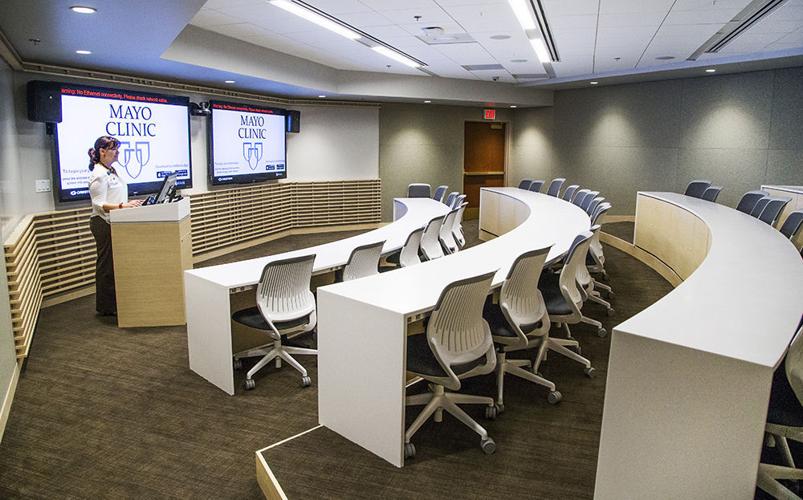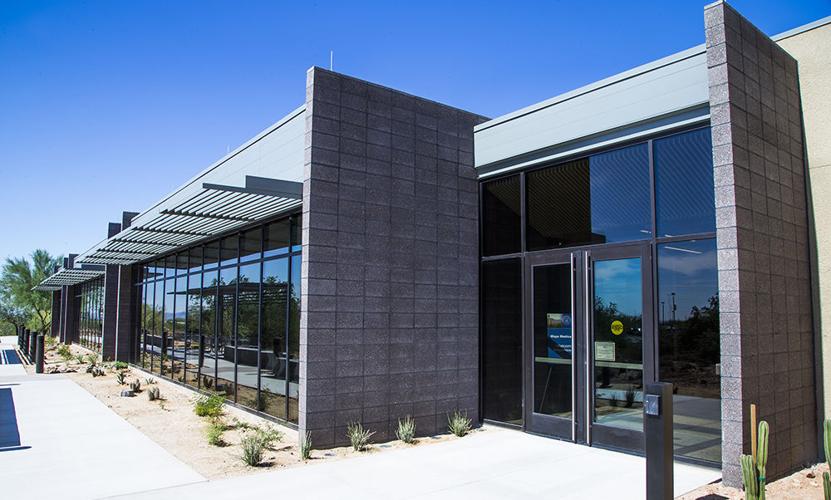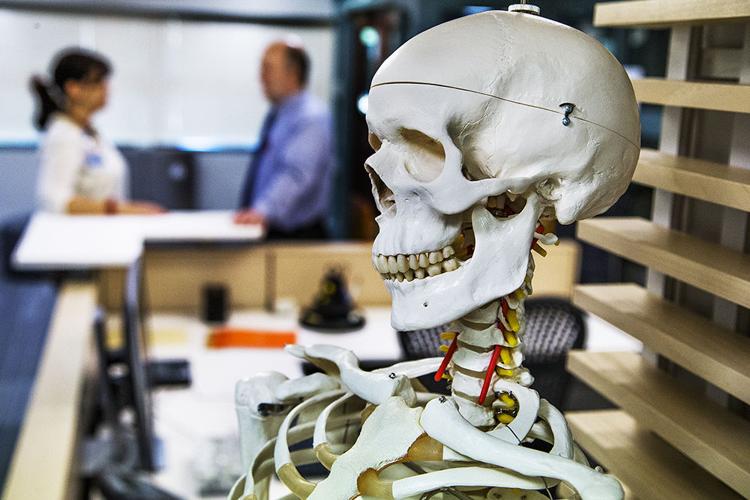The Mayo Clinic and ASU announced Friday they’ve created a formal alliance to collaborate on health education, patient care and research.
The Mayo Clinic and Arizona State University Alliance for Health Care is different from an affiliation created last year between the University of Arizona and Phoenix-based Banner Health, officials said. That affiliation was a result of a merger between Banner and the University of Arizona Health Network.
The alliance between ASU and Mayo has a governing board and leaders said they are building on an existing relationship that already includes millions of dollars in joint research projects, and a planned partnership on a medical school that will open in 2017.
“Partnerships among medical and academic institutions have become critically important resources to expanding research, medical education and improvements in clinical care in our state,” officials with Banner Health said in an emailed statement, reacting to the new alliance.
“At Banner we have found immeasurable value in our relationships with the University of Arizona Colleges of Medicine, Arizona State University and MD Anderson Cancer Center, among others. In many areas, like Alzheimer’s Disease, multiple Arizona institutions are actively collaborating to accelerate research around prevention and cure.”
The work that Mayo and ASU will do on improving health-care delivery through technology, bioengineering and interdisciplinary care will complement the work that the UA and Banner are doing together, ASU president Michael Crow told reporters during a teleconference Friday.
“This is a big state already. You want these various entities to be different from each other,” Crow said. “This is different in the sense that this is an intellectual joint venture as opposed to financial. At the end of the day we end up with a lot of good things happening in Arizona.”
In 2017 the Mayo Clinic will open an allopathic medical school with ASU as a partner. It will be the third allopathic medical school in the state, and will be accepting a class of 50 students for its first year. The school is already taking applications for those spots and so far has received 2,500 applicants, officials said.
The other two allopathic medical schools in Arizona are both operated by the UA. They are the UA College of Medicine Tucson, which has a class size of 115 per year, and the UA College of Medicine Phoenix, which has a class of 80 students per year.
“This is an alliance that is really the culmination of over a decade of collaboration,” said Dr. Wyatt Decker, CEO of the Mayo Clinic Arizona. “But it does not involve an acquisition or merger.”
Decker said he expects that the alliance will result in better care for patients at Mayo with interdisciplinary work ranging from humanities to engineering. He cited an example of an existing project where humanities students from ASU write poetry at the bedside with Mayo patients.
ASU plans to break ground in 2017 on a 150,000-square-foot Health Solutions Innovation Center on land it owns adjacent to the Mayo Clinic Hospital in Phoenix. The facility will include a med- tech innovation accelerator, biomedical engineering and informatics research labs and an education zone.
One key part of the collaboration involves developing highly skilled physicians who can provide the finest in medical care and also help shape and improve the nation’s complicated health care system, Decker said.
The national Mayo Clinic School of Medicine has collaborated with ASU to develop a specialized curriculum and certification in the science of health-care delivery, jointly conferred with ASU, which students earn concurrent with their Mayo Clinic medical degree.
Students will have the option of continuing beyond the certification to pursue a master’s degree in the science of health-care delivery through ASU.
Since 2003, leaders from ASU and Mayo Clinic have worked together on a series of strategic collaborations, including dual degree programs, a nursing education program, collaborative joint research projects and more than 80 joint faculty appointments and numerous joint intellectual property disclosures, officials said in a news release.
This alliance between Mayo Clinic and ASU — two of the most innovative and respected institutions in the country — moves our region in exactly the direction we need to go. It will spur exciting new developments in healthcare education, research and biomedical technology,” Phoenix Mayor Greg Stanton said in a prepared statement.






